
SHRIMP KANIKAMA SUSHI PIZZA YAKITATE
Pinterest. Also known as imitation crab and crab sticks, Kanikama is a popular item at various sushi restaurants and supermarkets throughout the U.S. It is also a frequent ingredient of California sushi rolls and crab rangoons. Although its moniker contains the word "crab", Kanikama does not include any crab flesh yet offers the most.

5 Things About Kani Sushi Ingredient TripNTravel
Kanikama sushi, also known as imitation crab sticks or crab sticks, is a type of sushi that is made with imitation crab meat. It is a popular ingredient in sushi rolls and other Japanese dishes. Despite its name, kanikama does not actually contain any crab meat. Instead, it is made from a mixture of fish, usually Alaska pollock, starch, sugar.
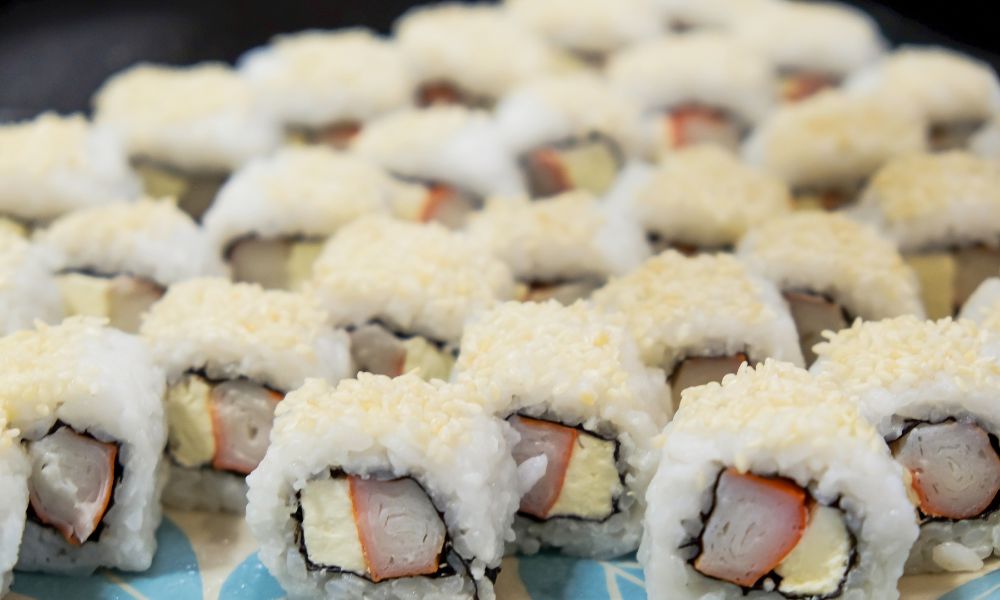
The Complete Guide To Kanikama Sushi Make The Best Kani Sushi At Home
The Art of Selecting the Finest Kanikama for Sushi Enthusiasts. Sushi lovers, unite! The quest for that delectable, ocean-flavored bite often leads us down the path of kanikama, the trusty imposter in the world of crustacean cuisine. It's a story of evolution, from a humble substitute to a revered staple, capturing the essence of crab without.
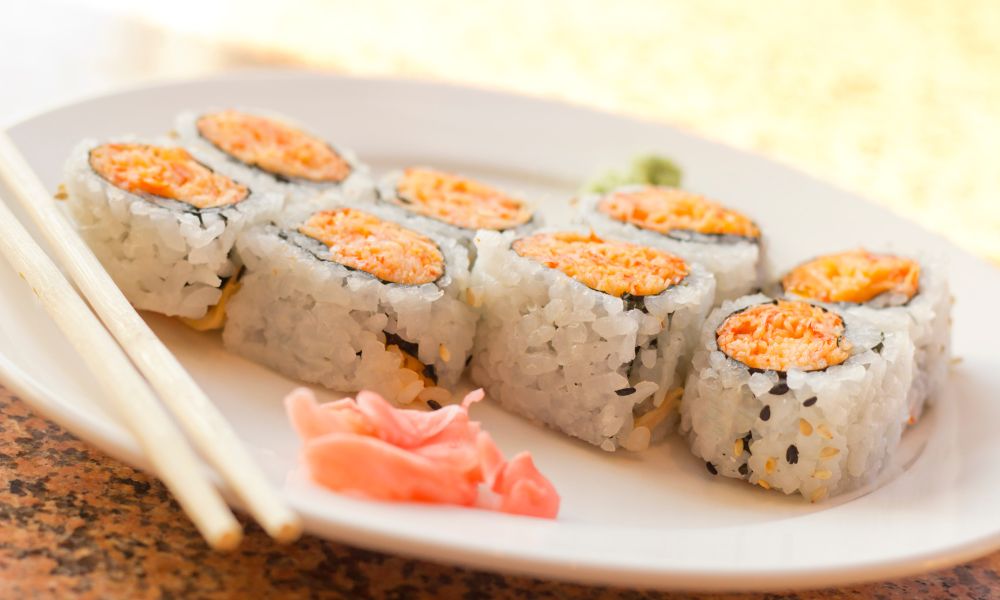
The Complete Guide To Kanikama Sushi Make The Best Kani Sushi At Home
Kanikama can be eaten in a variety of ways other than in a sushi roll or salad. It may be used to make wonderful crab cakes, stir-fries, pasta, quesadillas, chowders, and other foods. They can be used as sticks, flakes, shredded, or chunked. Kanikama tastes best when it isn't overcooked, as overheating damages the flavor and texture.
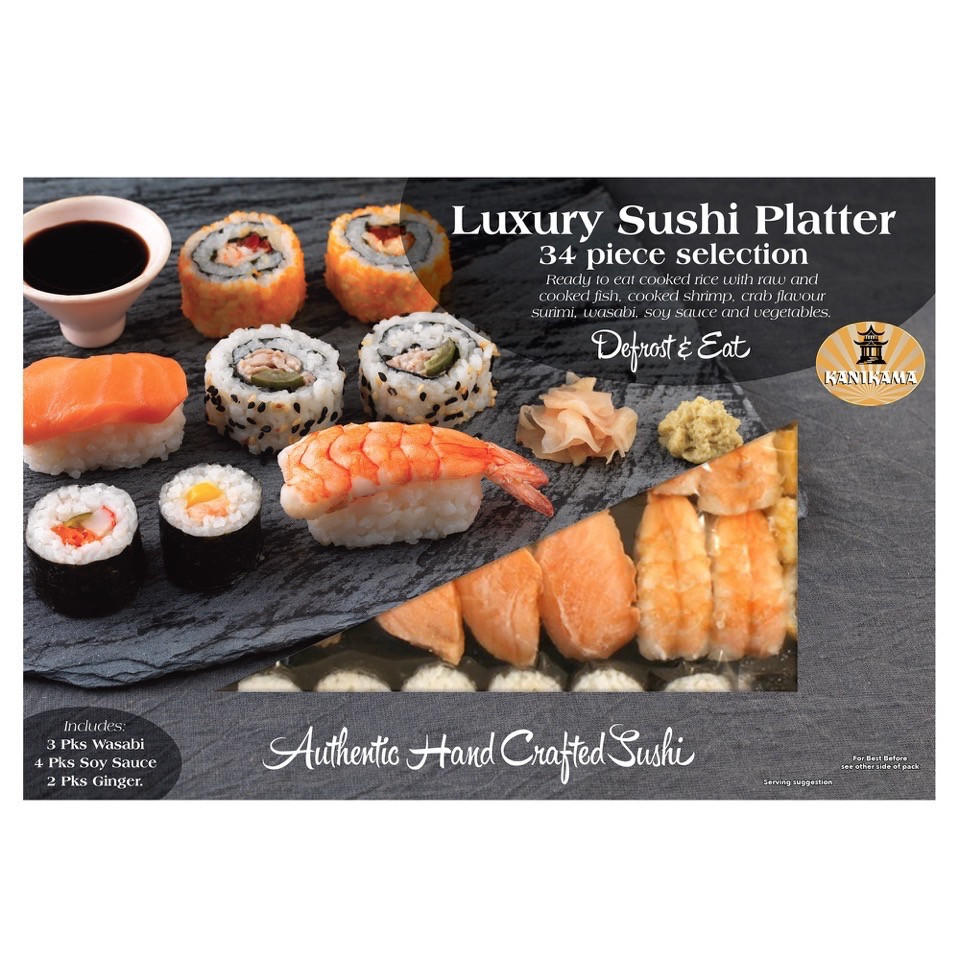
Kanikama Luxury Sushi Platter 690g Luxury Fish & Seafood Iceland Foods
Ingredients For Kani Salad. Imitation crab meat (also known as surimi in the US, or kanikama in Japan) or real crab meat. English, Persian, or Japanese cucumber (the ones with less seeds) Sweet corn kernels (fresh, frozen, or canned) Dressing (see below) Optional add-ins: vegetables such as julienned carrot, edamame, glass noodles or kelp.

Kanikama, salmón o pescado blanco 4 recetas para hacer sushi pero en
Best Sushi Bars in Ohiopyle, PA - Nguyen Seafood & Steakhouse, Tokyo Thai Sushi Hibachi, Yamato Japanese Steak House, Ogawa Japanese Restaurant, Jin's Asian Cuisine, Kabuki Japanese Cuisine, Volcano Japanese Restaurant, Kumo Japan, Tokyo Sushi & Hibachi, Yoshino
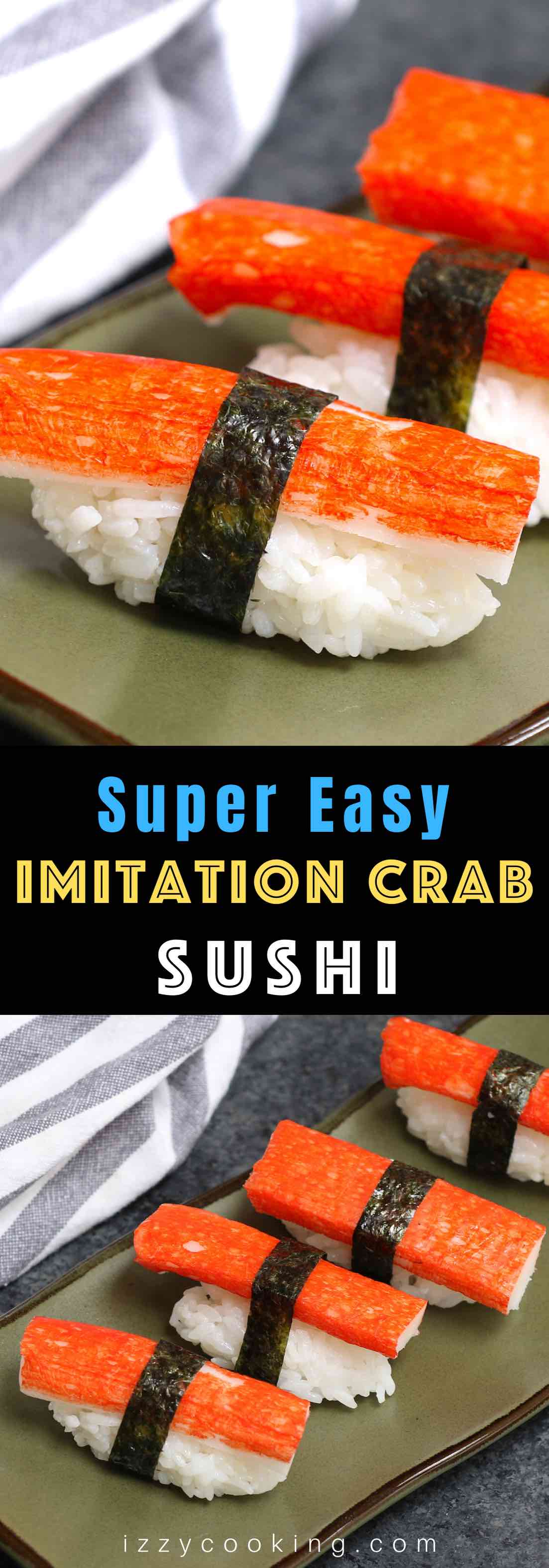
What is Kanikama (Imitation Crab Meat) and Kanikama Sushi
Best Sushi Bars in New Stanton, PA - Tokyo Sushi & Hibachi, Mr Tokyo, Edo Hibachi, Atami Japan, Yummy Palace, Robokyo Japanese Steakhouse, New City Buffet, Samurai Japanese, China Garden

Kanikama Maki Crab Stick Savoury food, Food, Crab stick
Cover the rice with a little mayonnaise so it's nice and sticky and put the kanikama on top (again, half because you're making two rolls), add some avocado, and cucumber slices as well. Roll the maki with the bamboo mat, and take your time to be precise. Then it's ready to serve. Cut it into 8 equal round pieces and start making the second roll.
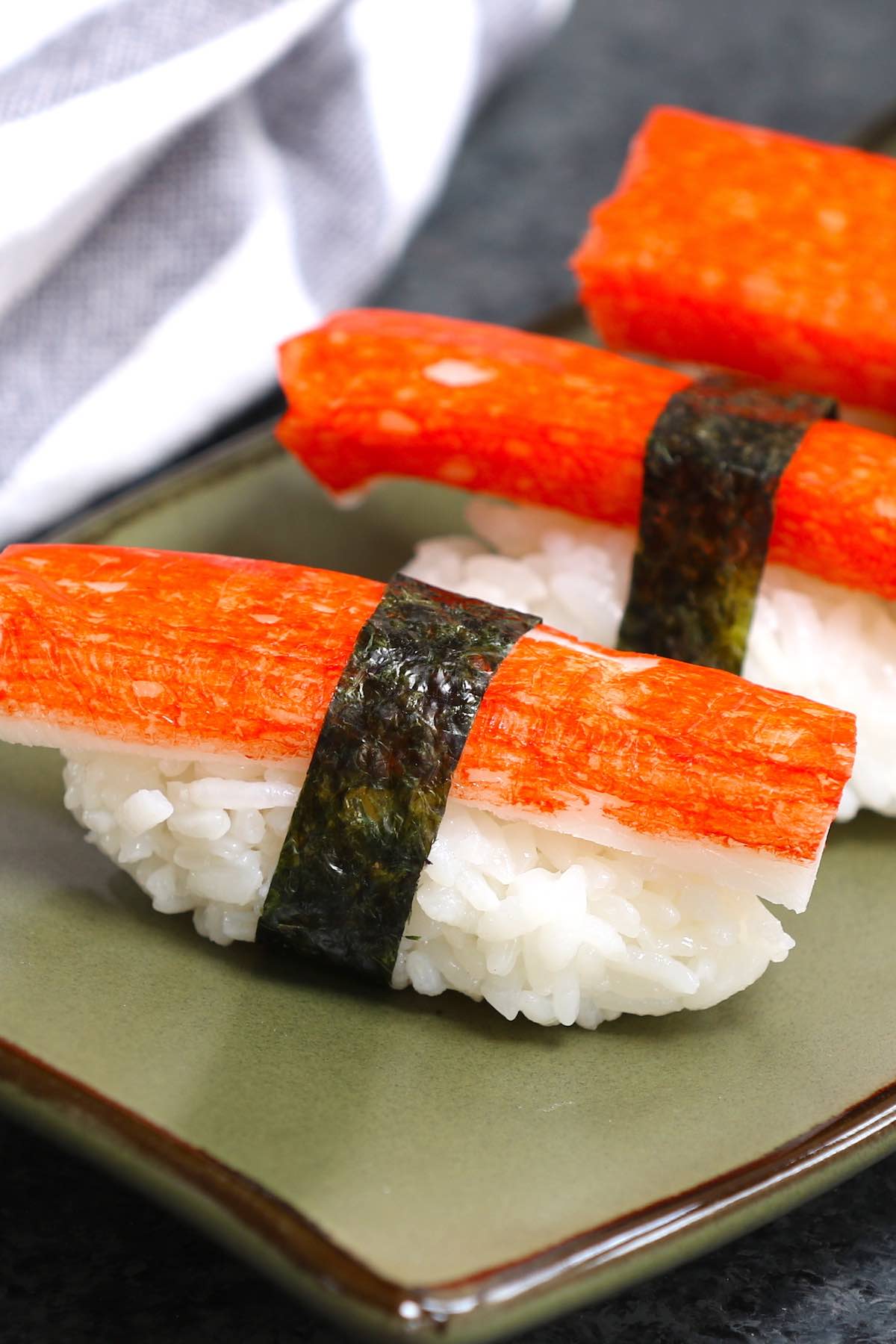
What is Kanikama (Imitation Crab Meat) and Kanikama Sushi
Also called imitation crab, kanikama is used as a crab substitute and made from surimi, which is a fish paste. The fish is first deboned and minced to make a paste, then it's flavored, colored and reformed into flakes, sticks or other shapes. Kanikama usually contains no crab, except a tiny amount of crab extract to create the flavor.

Illustration De Dessin Animé De Sushi Kanikama Vecteur Premium
Kanikama is a Japanese shorter term for Kani kamaboko (crab kamaboko) made from a type of fish paste that has a similar taste and texture to crab meat and used as a low-cost alternative to real crab in various dishes, such as sushi rolls and salads. Often shortened as Kani, Kanimaka is made of Surimi (or white fish paste).

Receta de ensalada kanikama para sushi, con surimi de cangrejo
Kanikama is the 'crab' that you often find within sushi, or as sticks at your local grocery store. While it looks like crab, and tastes like crab, it is white fish that has been grounded into a paste. It includes flavoring and coloring that creates 'imitation crab'. While it may not be real crab, you can enjoy it just the same.
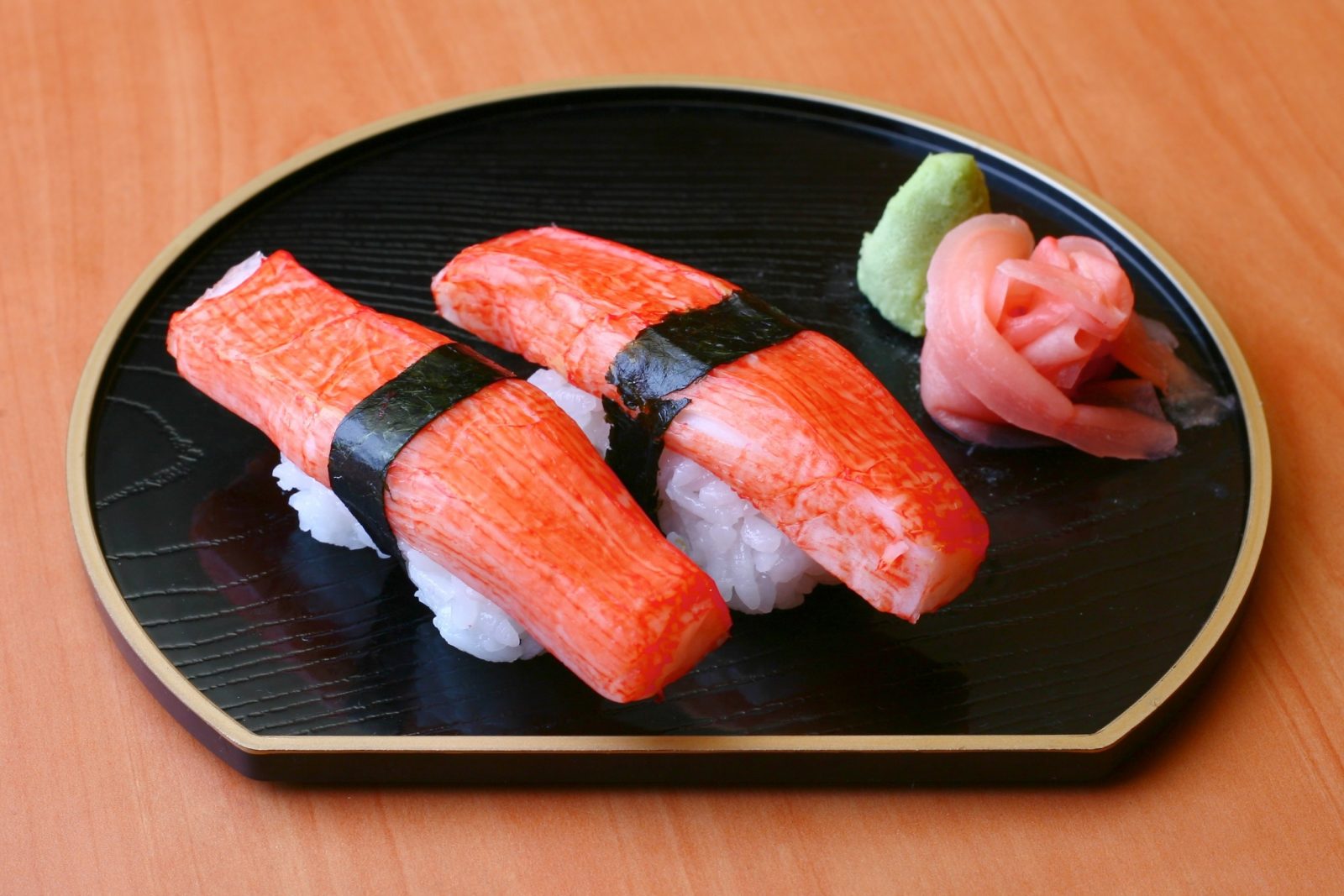
🍣 You Can Eat Sushi Only If You Get More Than 9/16 On This Quiz Quiz
Kanikama sushi simply features prepared sushi rice, seaweed, a dab of wasabi, and large pieces of imitation crab. Crab, in particular, is a highly sought-after ingredient in Japanese cuisine. However, it's only available during the winter months. Because of this, kanikama has become popular in the summertime.

Pin on Sushi HOKKAIDO SACHI Đông Du New Menu
Kanikama is known as "imitation crab" in English, but is made from surimi, which is usually a fish like Alaskan Pollock. Kanikama is used in many types of sushi, especially maki, or rolls. The most common example is the California roll, which generally contains imitation crab and avocado. A fish processor creates imitation crab from surimi.
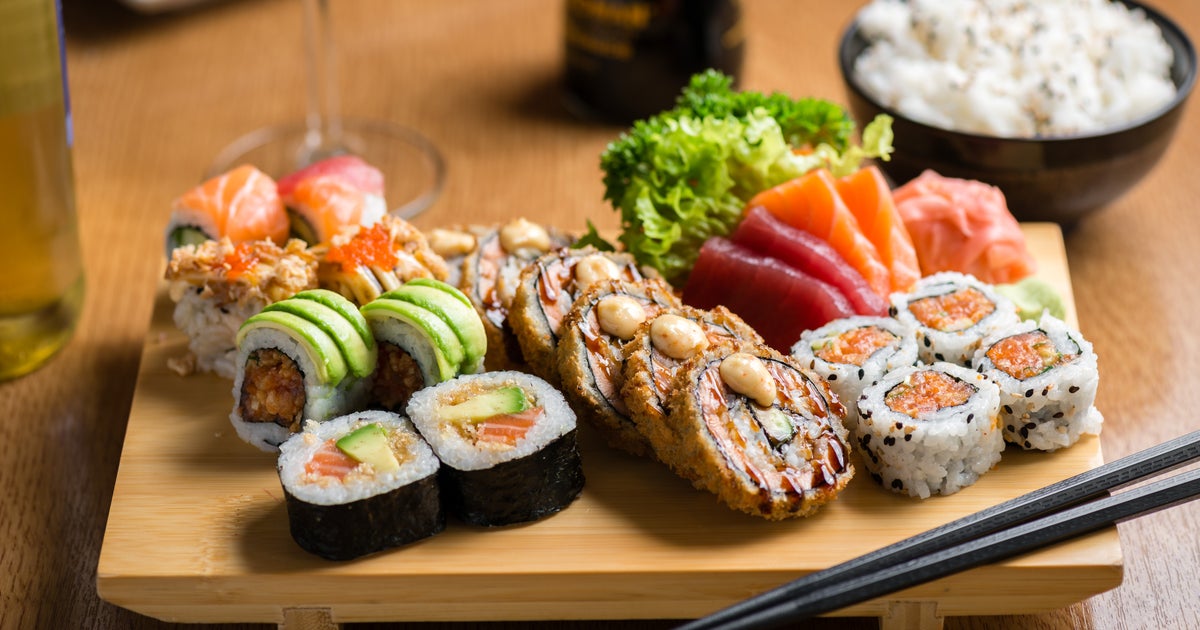
Kanikama Sushi van Centrum Bestel met Deliveroo
Kanikama (imitation crab): Choose high-quality Kani with natural ingredients for authentic flavor. Visit reputable Asian grocery stores or supermarkets with seafood sections to buy fresh Kanikama. Sushi Rice: Opt for premium sushi rice like short-grain Japanese varieties for perfect texture and flavor. Find it at well-stocked Asian markets or online retailers specializing in Japanese ingredients.

Kanikama Especial Sushi2Go, Sushi a domicilio
Add water before making a seasoned rice vinegar mixture. Once cooked, transfer the rice to a large bowl before pouring in the seasoned rice vinegar. Prepare the nori seaweed sheets. Place the nori seaweed sheets on the bamboo mat, rough side up. Start by placing the rice evenly on the nori seaweed sheets.

Premium Vector Kanikama sushi cartoon illustration
Kanikama is also called imitation crab meat in English. The phrase means what it reads, and these sticks imitate crab meat. Despite being called imitation crab meat, these sticks do not have crab meat. Instead, they are made from surimi, a paste concocted out of grinding minced pieces of white fish and starch.